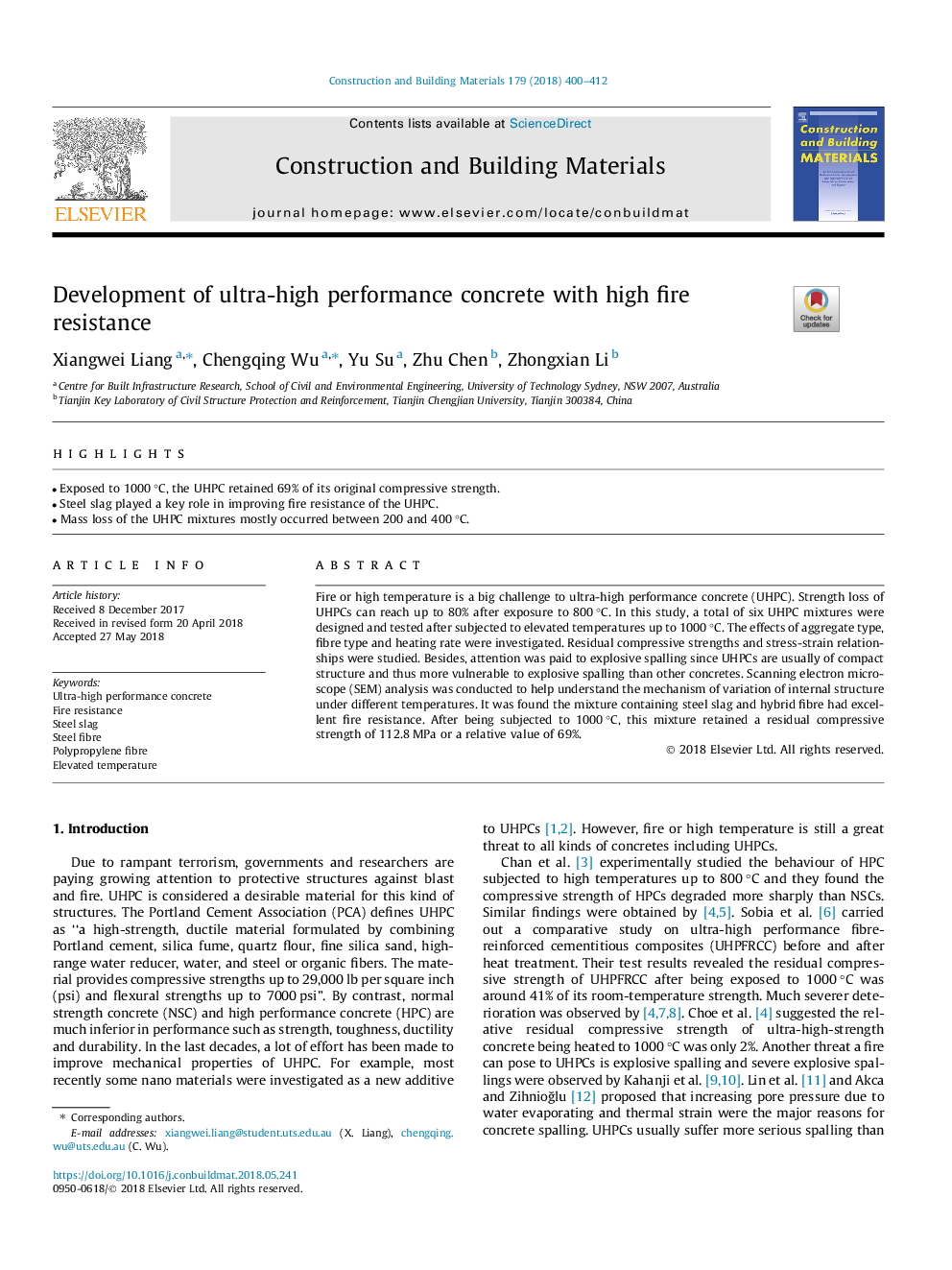| Article ID | Journal | Published Year | Pages | File Type |
|---|---|---|---|---|
| 6712757 | Construction and Building Materials | 2018 | 13 Pages |
Abstract
Fire or high temperature is a big challenge to ultra-high performance concrete (UHPC). Strength loss of UHPCs can reach up to 80% after exposure to 800â¯Â°C. In this study, a total of six UHPC mixtures were designed and tested after subjected to elevated temperatures up to 1000â¯Â°C. The effects of aggregate type, fibre type and heating rate were investigated. Residual compressive strengths and stress-strain relationships were studied. Besides, attention was paid to explosive spalling since UHPCs are usually of compact structure and thus more vulnerable to explosive spalling than other concretes. Scanning electron microscope (SEM) analysis was conducted to help understand the mechanism of variation of internal structure under different temperatures. It was found the mixture containing steel slag and hybrid fibre had excellent fire resistance. After being subjected to 1000â¯Â°C, this mixture retained a residual compressive strength of 112.8â¯MPa or a relative value of 69%.
Keywords
Related Topics
Physical Sciences and Engineering
Engineering
Civil and Structural Engineering
Authors
Xiangwei Liang, Chengqing Wu, Yu Su, Zhu Chen, Zhongxian Li,
